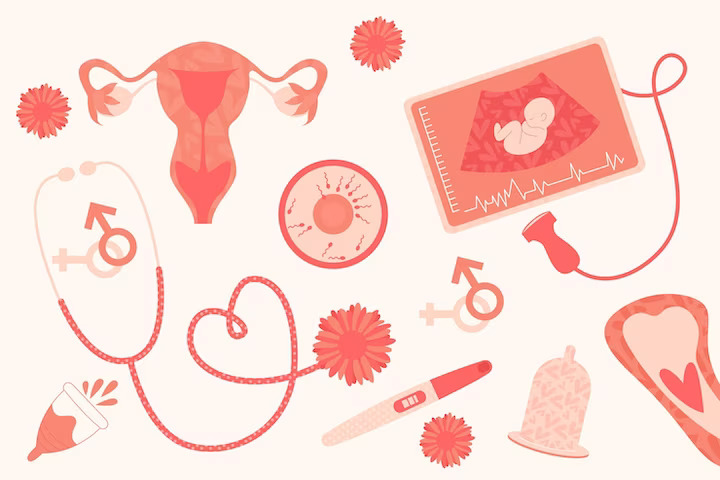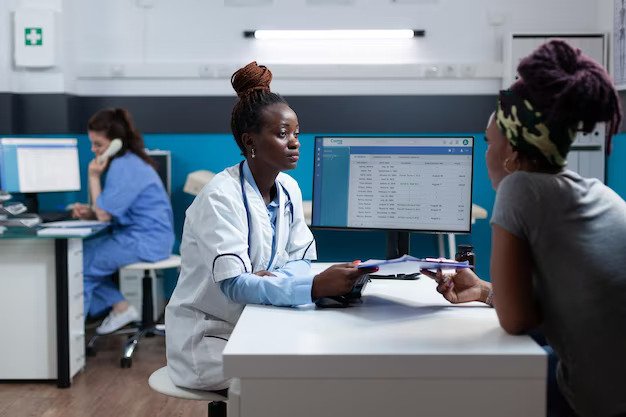Sexually transmitted diseases or STDs for short, are an issue that affects a big portion of the world. According to health organizations around the planet, every day, doctor’s offices diagnose one million cases of STDs.
These diseases can be transmitted in different ways through sexual contact and can vary from those that can be treated easily to those that have no known cure so far.
Most of them can cause a serious health problem if left undiagnosed and untreated (infertility, cancer, even death). Luckily, which regular gynecological exams, it’s possible to detect, diagnose, treat and prevent STDs and help women lead a happy and healthy reproductive and sexual life.
Here’s how gynecological exams can help maintain female health and keep you safe from STDs:

Pelvic exams
Pelvic exams are one of the most basic ways to examine the female reproductive system.
During this regular test and screening, your gynecologist will inspect various parts of your reproductive system, including the vulva, vagina, cervix, ovaries and uterus, looking for any signs of inflammation or infection.
Through this exam, your doctor can notice any abnormalities and catch them in their early stages. Some STDs like genital warts, genital herpes and chlamydia are easy to notice early on. Other things your doctor will pay attention to are the size and shape of your uterus and ovaries (any abnormalities can also be a sign of possible infection).

Pap smears
A Pap smear is a very standard gynecological tool used in most exams. This test is designed to check cells from the cervix and look for abnormalities that might indicate cervical cancer.
But, aside from cancer, the Pap smear can also detect certain STDs like human papillomavirus (HPV). HPV is a common STD that can lead to various complications like genital warts, cervical cancer and other types of cancer.
The exam itself might not be the most pleasant, but it’s fast and you can get your results in a matter of days. In case the results come back with some abnormal findings, expect to undergo certain more sensitive diagnostic procedures and interventions to prevent the progression into cervical cancer.
STD screenings
Besides a Pap smear, there are other ways to test for STDs, all of which can be a regular part of your gynecological visit.
Through STD testing, your doctor will get to diagnose STDs early and administer quick treatment that can prevent any complications and long-term issues. What kind of tests your doctor chooses to do depends on your age, sexual history and risk factors.
For instance, sexually active women who have multiple partners are at higher risk and might need more tests and more frequent visits to the testing clinic. All in all, STD screening is a simple process that can be done in many ways, depending on which infection your doctor is testing for.
You can be prescribed a blood test (for HIV, syphilis and hepatitis B), urine test (for chlamydia and gonorrhea), vaginal test (abnormal discharge, sores, warts), throat swab test, cervical sample during a Pap smear, or rectum swab test.
In general, STD testing is a painless process that only takes a minute or two. After the sample is taken, it goes to a lab for analysis and your doctor will tell you your results as soon as they are ready.
In case your results are positive, your health provider will get you a swift STD treatment plan that will nurture you back to health. In most cases, STDs are treated with antibiotics or antiviral meds, so if you’re scared of treatment, there’s really no need to delay your testing.

Education
The best way to prevent STDs is to know a few things about them and their transmission. Knowledge is the sure way to stay safe from these diseases, and there’s no better source of information about sexual health than your gynecologist.
Your doctor will provide all the best information on prevention, such as how to practice safe sex, why to get vaccinated against certain STDs (such as HPV) and what to do in case you develop an STD.
This way, you’ll understand all the risks of unsafe sexual contact and sexually transmitted diseases and know how to protect yourself and your partner (or partners) from them.
Gynecologic testing is a crucial method for identifying and preventing STDs. Regular examinations can aid in the early detection of infections, hence preventing significant health issues.
Women should take routine gynecologic examinations and talk to their doctor about any issues they may have with their sexual health. All women, both young and old, can greatly benefit from preventing STDs and maintaining their general wellbeing, all by actively participating in their reproductive and sexual health.
AUTHOR’S BIO:
Sadie Brooks is a journalism graduate with a passion for yoga and healthy living. She lives in San Francisco and enjoys reading, cooking, and theater. She would love to thank the OB-GYN specialist of South Miami for being a great reference while doing research on STD screening.
YOU SHOULD ALSO READ:



